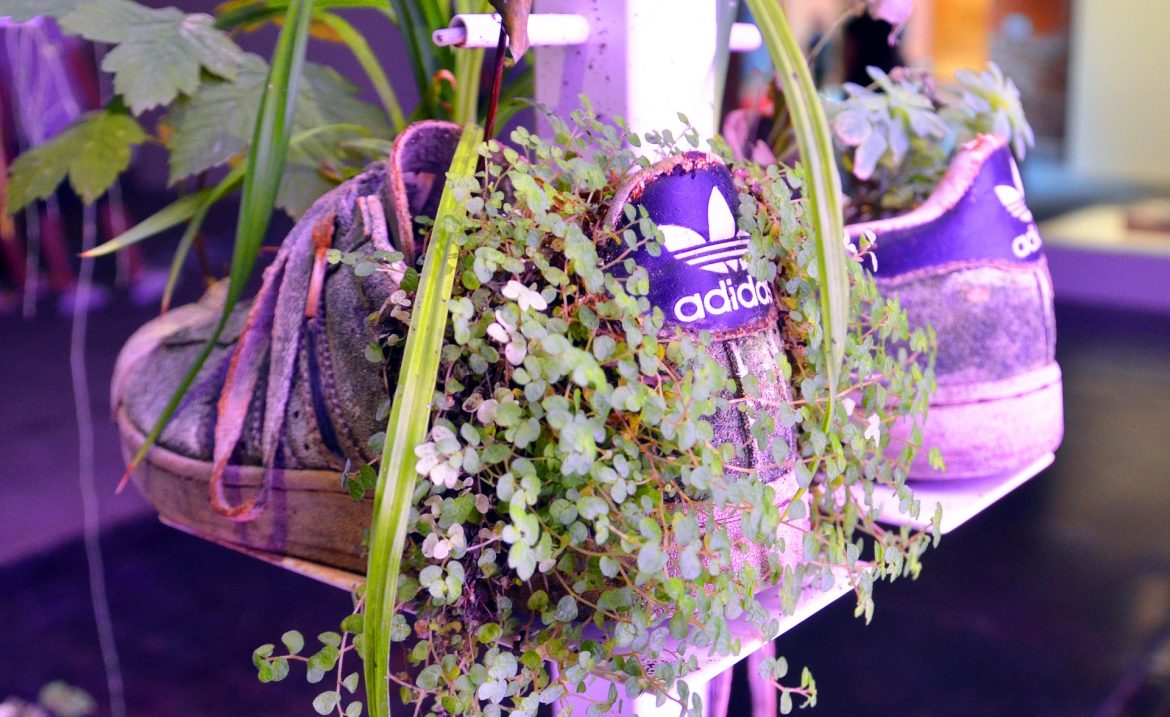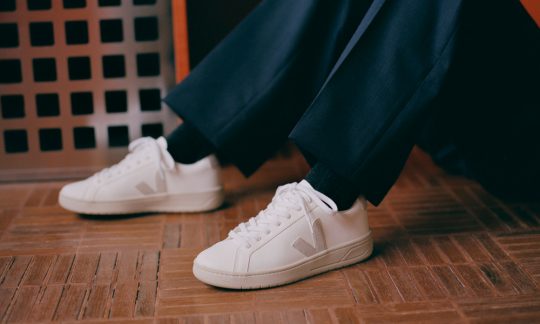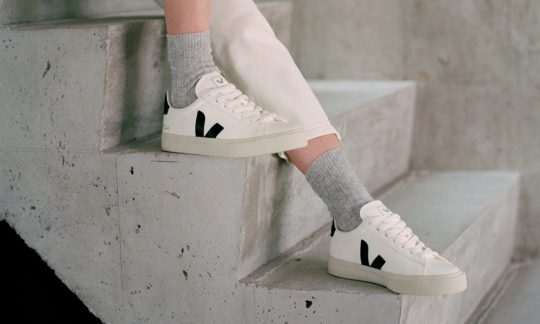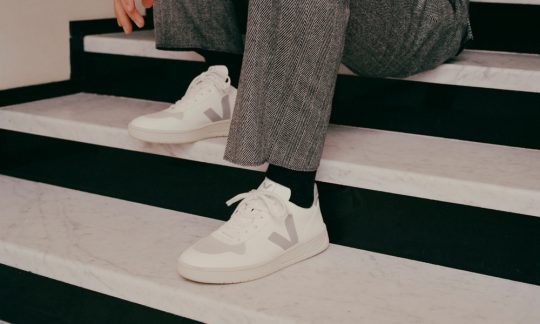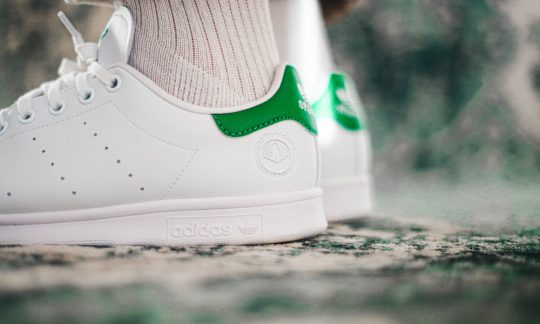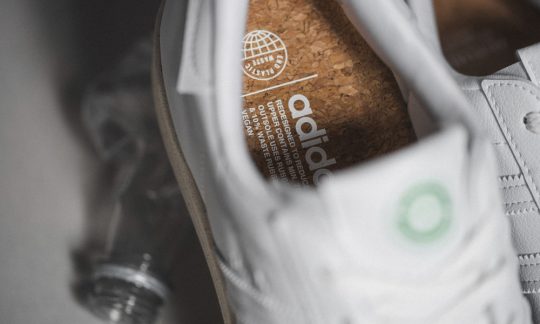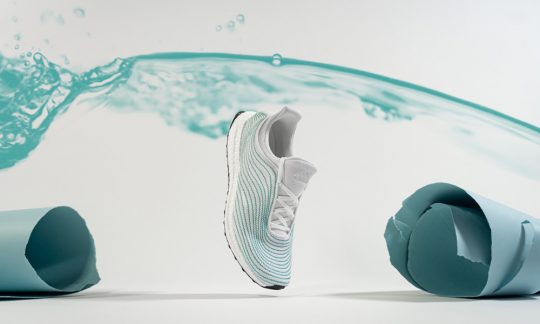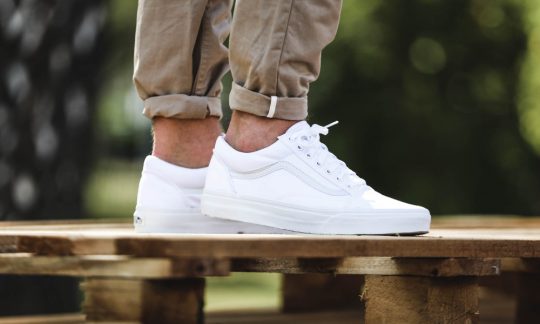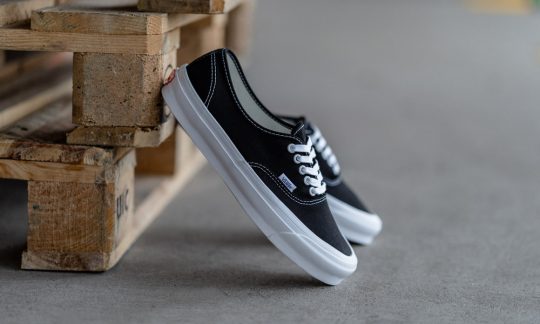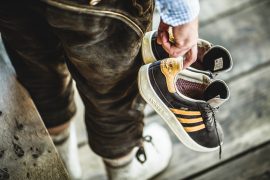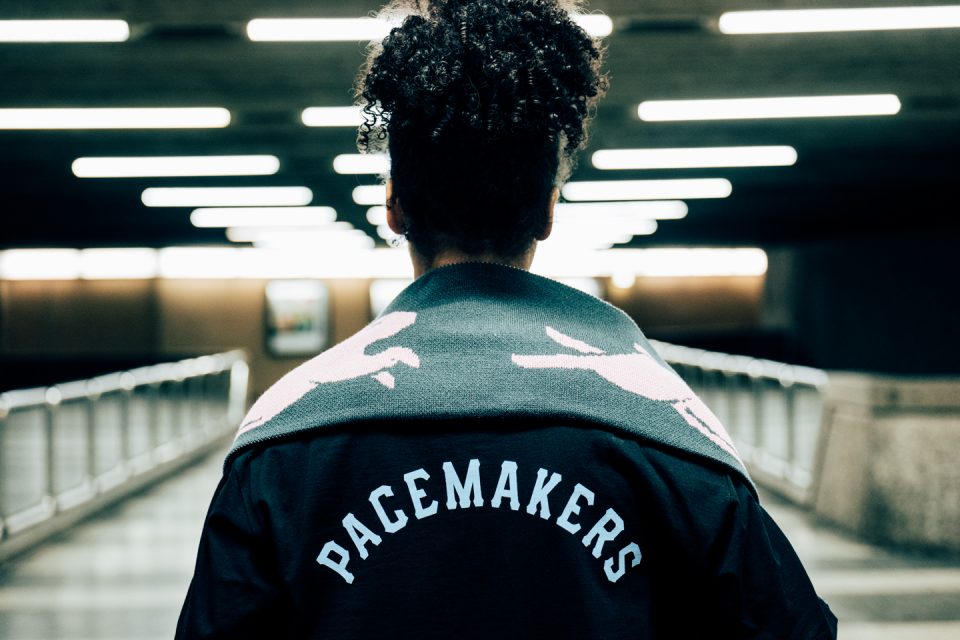Time for a change! Our stock is filling up more and more with sustainable and/or vegan sneakers. We’re here to help explain when sneakers are actually sustainable and which brands have eco-friendly alternatives!
After some negative rumours and accusations of greenwashing against the big trainer brands, the sneaker industry has experienced a turnaround in recent years. Topics like recycling, fair production, vegan alternatives and environmental friendliness have also arrived at the manufacturers. Whether the whole thing is a trend or actually has a long-lasting effect, we will see in the next few years.
But there is still room for improvement! And the community is also increasingly demanding a more responsible manufacturing process and fair working conditions. Brands like adidas and Nike are in the spotlight and are taking it upon themselves to do more. The brands are responding with responsibility initiatives that are actually having an impact. Because these are not only characterized by an ecology-oriented value chain, but also by the affirmation of an environmentally conscious mindset among the population.
Did you know, for example, that the production of one pair of leather shoes uses an average of 8,000 litres of water? That would be the same as running the water in the shower for about eleven hours. The average CO2 emission in the production of a pair of running shoes is also worth mentioning here, because according to a study by MIT, between 11.3 and 16.7 kilograms of CO2 are contained in a pair. To compensate for this, every jogger would have to run about 160 km instead of driving a car.

When are sneakers actually sustainable?
Sustainable sneakers are characterized in particular by the materials used. Chemically tanned leather is a no-go!
There are now many alternatives: Organic cotton, canvas, recycled polyester, recycled synthetic leather, natural rubber or vegetable-tanned leather. The ecological tanning process is cost-intensive and lengthy, which ultimately makes the shoe more expensive. To ensure that the sneakers are not harmful to the environment after production, short transport routes are a must. On top of that, the shoe boxes are often recycled as well. In addition, sustainable brands shine through fair working conditions and cooperation with local producers. The showcase example is the French brand VEJA.
Vegan and eco-friendly leather sneakers – how does it work?
Many brands use synthetic leather for their vegan models. Synthetic leather is made from synthetic materials. But these are notoriously not good for the environment and only support the sustainable idea to a limited extent. For this reason, brands often go different ways, such as adidas, which uses only recycled materials for its »Vegan Icons« imitation leather uppers, which also come with a useful PU coating. VEJA provides us a solution that avoids the use of plastic almost entirely. The label has succeeded in finding a vegan and organic material that offers a real alternative to leather – both in terms of suppleness and ecological commitment. The so-called C.W.L. (Corn Waste Laminate) material is made in Italy from corn waste and consists of cotton fabric coated with corn waste P.U. from the food industry. This makes it possible for VEJA to bring completely vegan sneakers to the market.
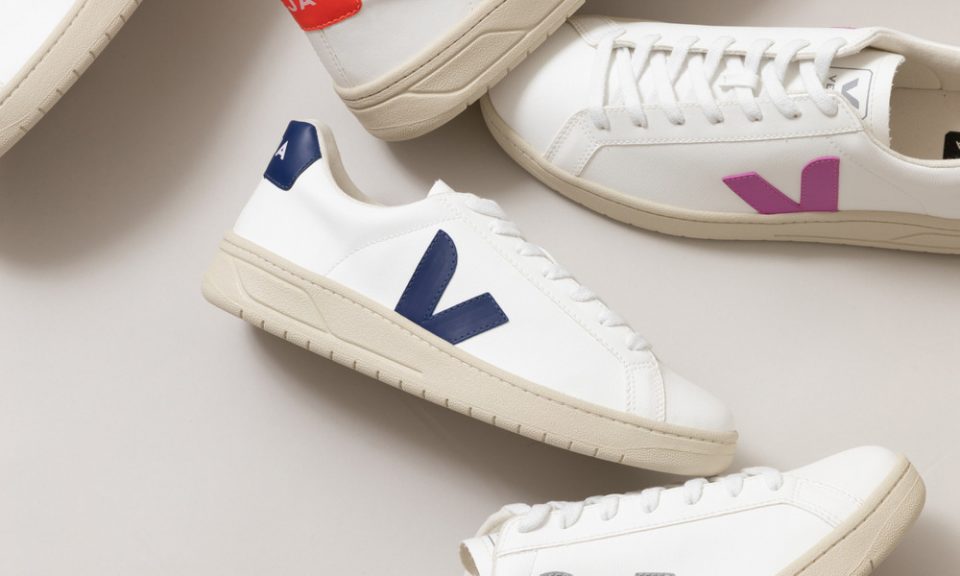
Brands with sustainable sneakers:
Sneakers that are made differently: VEJA
VEJA’s philosophy »Is another world possible?« points to the label’s fair working conditions, sustainable thinking and transparency. The raw materials for VEJA sneakers are made in Brazil and consist partly of recycled polyester, organic cotton and natural rubber. In this way, the brand helps local organic farmers to make a living from their products and, on top of that, prevents further deforestation of the rainforest through sustainable rubber production. By the way, the two founders have been doing this since 2005 and the sneakers now have a kind of iconic status, which makes them extremely popular in our community. Not only the ecological idea is very popular, but also the design of the sneakers, which is inspired by styles from the 70s.
Move to Zero: Nike’s motivation to reduce waste to zero
Sustainability is actually nothing new at Nike. Even before the release of the Space Hippie Pack this year, the Nike brand recycled more than four billion plastic bottles for its products. With the new »Move to Zero« mission, the manufacturer has set itself the goal of reducing CO2 emissions and waste to zero in order to secure the future of sport. The Space Hippie collection was just the first step in raising awareness for climate protection.
The concept of »Trash Transformed« comes to life in the Space Hippie models! They consist of 85-90% recycled materials such as plastic bottles, T-shirts and industrial waste. Incidentally, the project was inspired by the idea of a Mars mission, with Mars representing all those places where resources are limited.
Nike clarifies its mission with the following statement:
If there is no planet, there is no sport. To understand how this affects all of us, we’ve partnered with expert researchers at the Climate Impact Lab to show the connection between a stable climate and athletic performance and the future of our playing field – planet earth. We know that with an athlete’s mindset: determination, persistence, and relentlessness, we can use the power of sport to move the world to climate action.
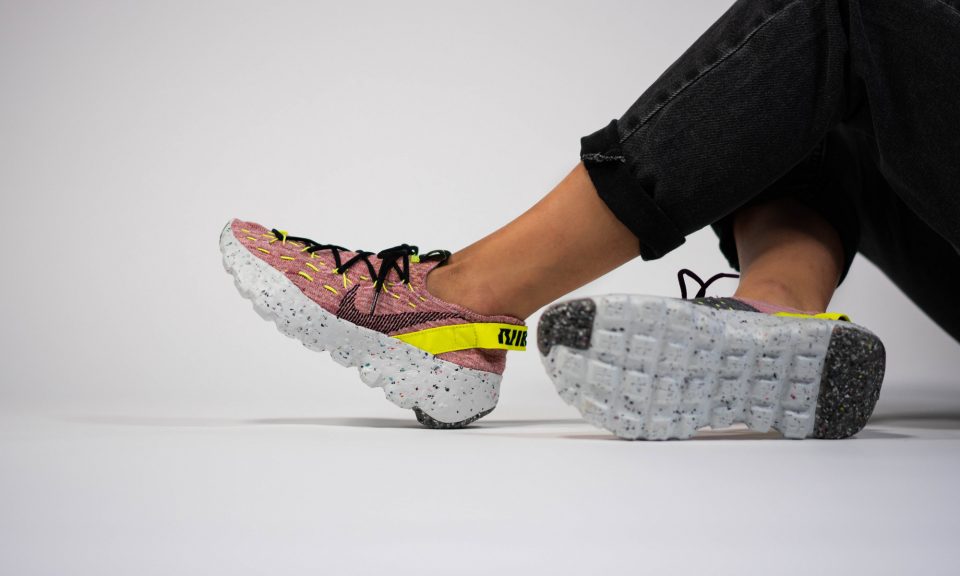
Vegan Trefoil classics and upcycling at adidas
The topic of sustainability and the vegan lifestyle has also arrived at adidas. As a founding member, adidas has been supporting the »Parley for the Oceans« initiative since 2015, collecting plastic waste from beaches and upcycling it to make a substitute for plastic. Now adidas is making an effort to present some of their classics in a new remake that completely dispenses with animal materials and is therefore 100% vegan. From the colour,to the glue, adidas has found a vegan substitute that has no negative impact on the material quality. The models in the »Vegan Icons« pack include the cult sneaker Superstar, the indoor legend Samba, the absolute »go-to« sneaker Stan Smith and also the court all-rounder Continental 80. All models in vegan design are adorned with an embossed vegan logo in the upper.
Durable & vegan version from Vans
Vans, as the best-known skate brand of all, has long had sneakers in its range that are completely free of animal components. All Vans models made from fabric instead of leather are vegan-friendly and are made from responsibly sourced, sustainable materials. The famous »waffle sole« does not use beeswax and consists of a mixture of carbon and rubber. The upper of the vegan Vans models is made from canvas, which is produced from cotton from the »Better Cotton Initiative«. The laces are also made of 100% cotton and are extremely durable thanks to a special coating. Since Vans are skate shoes, they have to be particularly durable and robust. You can be sure that the vegan Vans sneakers will last just as well as the leather versions.
Sustainable choices & HEAT for sneakerheads:
In the course of the »Move to Zero« campaign, Nike has released some models that make the heart of every sneakerhead beat faster. In addition to the innovative Space Hippie models, Nike has also tried its hand at sustainable Jordan 1s, Dunk Lows and Air Force 1s, which are currently hipper than ever.
The models were released as part of the »Crater Pack« and feature recycled polyester and Nike Grind Rubber soles, which are also made from scrap materials.
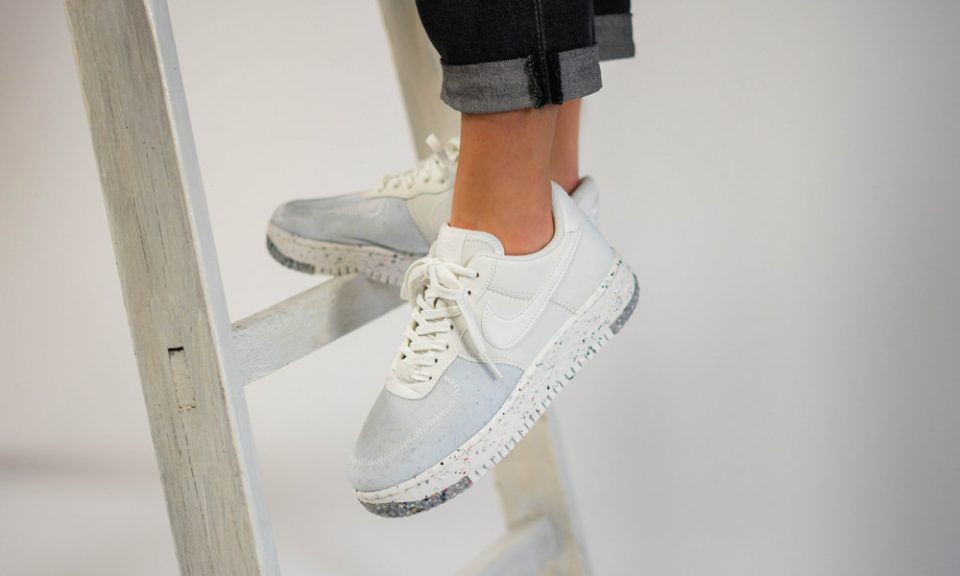
The Nike Dunk Low SP »Community Garden« was recently released. The idea of the »Community Garden« is incorporated in both the colorway and the materials. This is a Dunk Low that does completely without leather and relies on recycled canvas. The sneaker is covered in wild floral prints and thematically ties in with the gardens that are planted collectively around the world to save the land from desertification.
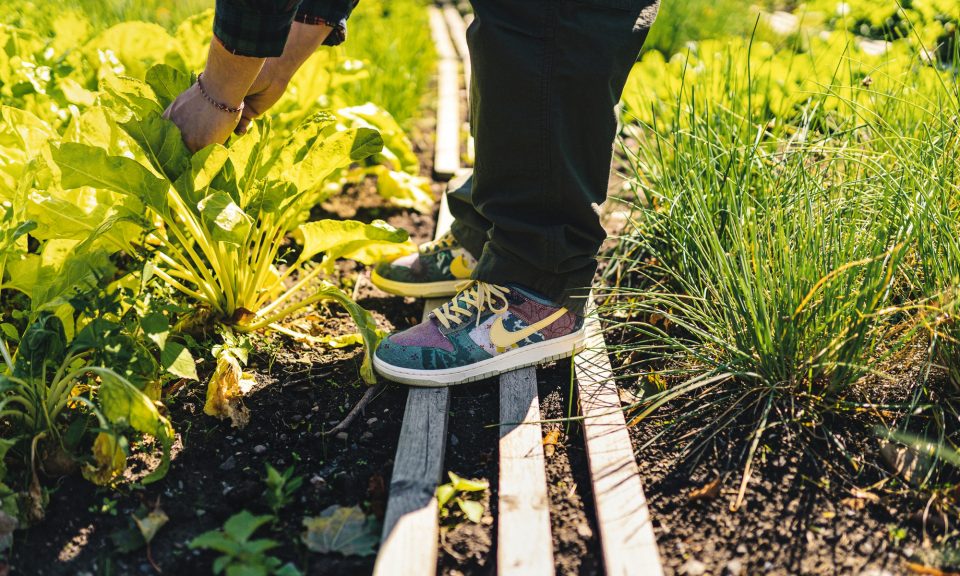
Sustainability at 43einhalb
As you can already see, »sustainability« is an important topic for us at 43einhalb. Always has been. We like to support projects like #SHOESOMELOVE or plant trees with »I Plant A Tree«.
But in order to save paper, water and energy together with you, we introduced the »REUSABLE boxes« about six years ago. Our 43einhalb-boxes are happy to make their way around a second or third time. When you return your ordered sneakers, the boxes no longer end up in the waste as they used to, but are stored by us. With every order, you can indicate with just one click whether you also agree to a REUSABLE box. Together, we save a lot of valuable raw materials! For every reused cardboard box, we also donate to a project that is close to our hearts.

